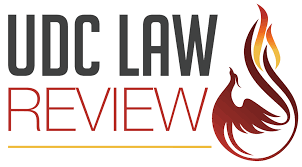
Abstract
Jose Lopez1 migrated to the United States without proper documentation. After he arrived, Mr. Lopez had several consecutive jobs as a line cook in various restaurants in Reno, Nevada. He started working at Casino restaurant. One day, Mr. Lopez noticed that his paychecks had not been reflecting the overtime hours he worked. Mr. Lopez approached his employer about his pay discrepancy. His employer told Mr. Lopez that he would pay for overtime the following week. The following week came, and the employer did not pay Mr. Lopez for his overtime hours. This continued for several weeks. Mr. Lopez confronted his employer again. This time, his employer threatened to call the police and U.S. Immigration and Customs Enforcement (ICE) on Mr. Lopez. Because of the stressful situation, Mr. Lopez quit and found another job, then sought immigration help. Mr. Lopez sought the help of an immigration attorney. Mr. Lopez explained to the attorney that his employer was not paying him his wages. The attorney told Mr. Lopez that he might qualify for a U Nonimmigrant Status (U Visa) because he was a victim of wage theft. Wage theft is characterized as the “failure to pay workers the full wages to which they are legally entitled.”2 To be eligible for the U Visa, Mr. Lopez had to be a victim of a qualifying crime, have substantial mental and physical harm, and cooperate with law enforcement or a designated agency, such as the U.S. Department of Labor (DOL), to certify the U Visa. 3 However, wage theft is not a qualifying crime on the U Visa certification form.4 The attorney emailed a DOL investigator to explain Mr. Lopez’s situation and how the agency may help certify Mr. Lopez’s U Visa. After four weeks, the DOL investigator responded to the email and stated that Mr. Lopez had not suffered a qualifying crime. The only labor-related qualifying crimes in the U Visa are fraud in foreign labor contracting, involuntary servitude, trafficking, slave trade, and peonage.5In the United States, many noncitizens have experienced wage theft.6 Noncitizen workers are abused in their workplace through wage theft and retaliation by their employers.7 In 2009, a study found that 37.1% of noncitizen workers surveyed were victims of minimum wage violations. 8 But few noncitizens report wage theft. 9 Crimes that noncitizen workers report typically do not qualify for a certification for a U Visa.10.
First Page
1
Recommended Citation
Genesis A. Guerra,
Adding Wage Theft As A Qualifying Crime in the U Visa Certification,
26
U.D.C. L. Rev.
1
(2023).
Available at:
https://digitalcommons.law.udc.edu/udclr/vol26/iss1/3

